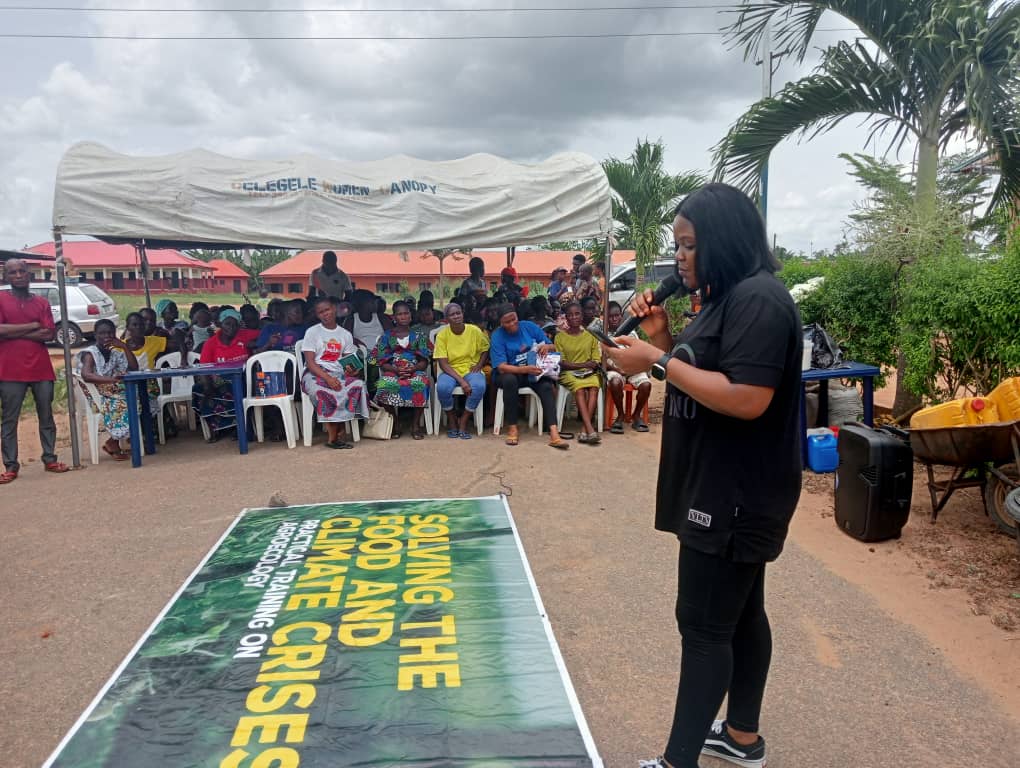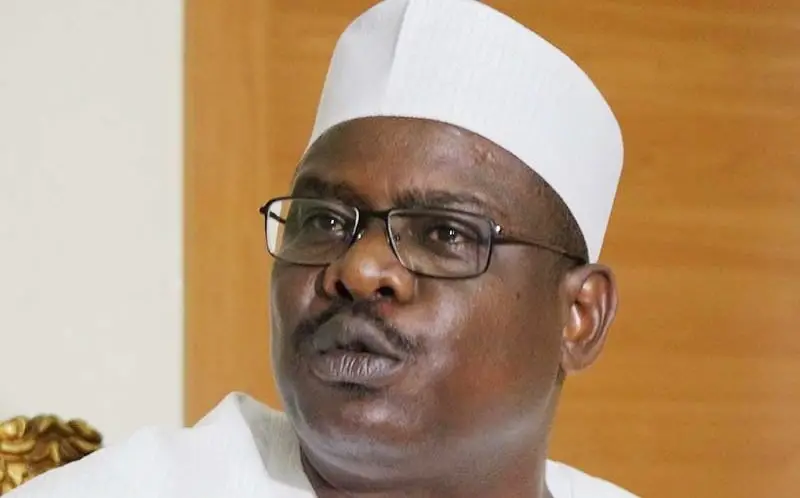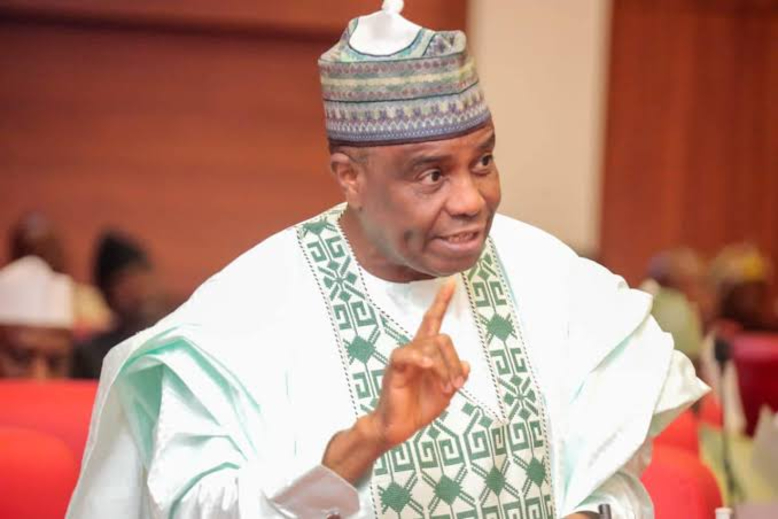News
GMOs: HOMEF Trains Gelegele Farmers, Urges Them To Embrace Agroecology

Health of Mother Earth Foundation (HOMEF) has advised farmers in Gelegele and Nigeria at large to embrace agroecology in their farming activities, saying it is the viable solution to Nigeria’s food crisis.
This is just as the ecological think thank and advocacy organisation urged government at levels to support farmers to embrace agroecology rather than GMOs – Genetically Modified Organisms.
INFO DAILY reports that agroecology is a system of farming that focuses on restoring soil health, improving nutritional diversity and ensuring food sovereignty, while GMO are plants, animals or microorganisms that have had their gentic material manipulated either by introducing genes from a related or unrelated species or by editing the organism within itself.
Speaking at a one-training on agroecology for farmers at Gelegele community in Ovia North East Local Government Area of Edo State, Programmes Director, HOMEF, Joyce Brown, emphasised the need for the farmers to embrace agroecology, saying the use of GMOs poses threat to the environment and human health.
READ ALSO: HOMEF Trains Women On Climate Change Adaptation
She said: “The use of chemical pesticides poses risks to the environment, human health, and the economy. More than 50 per cent of registered pesticides in Nigeria are Highly Hazardous Pesticides (HHPS). Over 40% of the registered active pesticides in Nigeria are already banned in the EU and other countries of the World.

Practical session if the training at Gelegele community on April, 29,2024.
“Many of these HHPs registered and used in Nigeria have been proven to be linked to chronic health diseases such as cancer, kidney diseases, reproductive complications, endocrine disruption – hormonal challenges, skin diseases, organ failures, etc., as well as biodiversity and environmental destruction.”
According to her, most farmers, consumers, extension workers are not aware of the various hazards associated with the pesticide-active ingredients in the products they use, adding that this is the more reason HOMEF decided to take the responsibility of training and enlightening farmers.
Mrs Brown, while noting that agroecology will help Nigeria achieve food sovereignty if embraced, added: “Food sovereignty refers to a situation where all people at all times have access to healthy and nutritious food. Food sovereignty ensures that beyond food security – food is safe, food producers have the right to what they produce and how.”
READ ALSO: NABDA, NACGRAB Merger Dangerous For Nigeria’s Biosafety, HOMEF Warns
On his part, one of the trainers of the farmers and farm manager, Be The Help Foundation, Abuja, Chukwu Agozirim, said agroecology is a modern system farming which, according to him, help to eradicate poverty by increase in food production and making the environment safe for humans
He said Gelegele was selected due to the fact that the soil is contaminated as an oil producing community, adding “so the main purpose is to train and enlighten them on how they can go about their normal food production in spite of the contamination of their soil.”
He added: “We are bringing farming back to the olden days how our great-grandfathers were farming.”
Responding on behalf of other farmers, Mr Emmanuel Obi, while describing the training as an eye opener, promised to adapt the new method of farming.
The programme climaxed with a practical session of the training where the farmers were showed how they can use locally sourced materials to grow their farm produce.
News
New Tax Laws: Suspend January 2026 Implementation — Senator Ndume Tells Tinubu

Former Senate Leader, Ali Ndume has appealed to President Bola Ahmed Tinubu to suspend the January 1, 2026, implementation of the country’s new tax laws amid growing controversy.
The federal lawmaker made the appeal in a statement he issued on Wednesday in Abuja.
This comes as the Nigerian Bar Association demanded the suspension of the implementation.
Recall that a member of the House of Representatives, Abdussamad Dasuki, had last week called the Parliament’s attention to alleged alteration to the tax laws.
READ ALSO:FIRS Confirms NIN As Tax ID
Chairman of the Presidential Fiscal Policy and Tax Reforms Committee, Taiwo Oyedele, in an interview on Arise Television on Wednesday, called for calm over claims of alterations in tax laws and urged Nigerians to allow lawmakers to complete their investigation before drawing conclusions.
Speaking on the ongoing controversy about the tax laws, Ndume noted that proceeding with the implementation without getting to the root of the alleged forgery will create a legitimacy challenge for the tax laws.
His statement read, “With the controversy surrounding it, the President should constitute a team to verify the veracity of the claim and act accordingly.
“As the responsive leader that he has always been, he should look at it to find out if the copy that was signed and the claim of alterations are genuine so that he will do the needful to bring the controversy to rest.
READ ALSO:US Threatens To Sanction Countries That Vote For Shipping Carbon Tax
“If not, the controversy will continue.” That is to say, the tax law will not be implemented, because you can’t build on nothing.
“So, Mr. President should suspend the implementation until the issues are resolved because so many civil society organizations, the Arewa Community, and the Nigerian Bar Association are saying that he should withdraw the tax law and investigate the allegation of forgery.”
“Therefore, Mr President should get to the root of the allegation of forgery. The small committee that will be set up should look into it while the House of Representatives does its own.”
News
Tambuwal Engages Security Agencies As US Airstrikes Hit Own LG In Sokoto

Senator Aminu Waziri Tambuwal, representing Sokoto South, has called on residents of Sokoto State to remain calm following reports of United States airstrikes targeting ISIS-linked terrorists on Christmas Day.
In a statement posted on his personal X account, the former Sokoto State governor said he was aware of reports concerning the airstrikes, which marked a direct US military action in Nigeria based on intelligence about ISWAP threats, and urged citizens to remain law-abiding while authorities clarify the situation.
“I have noted the reports concerning an airstrike carried out as part of ongoing counterterrorism efforts through cooperation between the federal government of Nigeria and the United States,” Tambuwal said. “I urge our communities to remain calm and law abiding as relevant authorities clarify the circumstances surrounding the operation.”
READ ALSO:US Dept Of War Shares Video Of Air Strikes In Nigeria
Tambuwal assured constituents that he was engaging with relevant security agencies to obtain full details of the operation and to ensure that necessary things were in place to protect civilians.
“I wish to assure the people of Sokoto South that I am in active talks with relevant security authorities to obtain full details and ensure that all necessary safeguards are upheld,” he added.
The senator emphasised that counterterrorism operations were aimed strictly at criminal and terrorist elements threatening public safety, not innocent civilians who are often victims of insecurity. He stressed that the protection of civilian lives must remain central to all legitimate security actions.
He further called on community leaders, traditional institutions and residents to work closely with security agencies by sharing credible intelligence and resisting misinformation capable of causing fear or heightening tension.
News
Rep Moore Confirms 12 Tomahawk Missiles Launched In Sokoto

No fewer than 12 Tomahawk missiles were on December 25 launched against terrorists in Sokoto State by the United States military.
Rep Riley M. Moore, the lawmaker representing Virginia’s Second District in the Congress, confirmed this in an interview with Fox News.
The US military operated in Sokoto State on Christmas night, bombing terrorists killing innocent people in parts of Nigeria.
READ ALSO:Trump’s Airstrikes: Halt Military Cooperation With US Immediately – Sheikh Gumi Tells Tinubu Govt
Some security analysts claimed on Friday that the operation was unsuccessful and had no significant impacts on the targeted terrorists.
According to them, the airstrikes landed in safe places including farms where there was no history of terrorists’ hideout.
But details began to emerge on Friday night, indicating that several terrorists were killed during the joint operations between the US army and it’s Nigerian counterpart.
READ ALSO:Nigerian Ringleader Of Nationwide Bank Fraud, Money Laundering Jailed In US, Says FBI
Moore said: “This year, thanks to President Trump, Radical Islamic Terrorists were on the receiving end of 12 Tomahawk missiles as a present.
“The successful strikes on ISIS, in coordination with the Nigerian government, is just the first step to secure the country and end the slaughter of our brothers and sisters in Christ”.
DAILY POST reports that residents of Sokoto State have been panicking since the US military operation.

 News5 days ago
News5 days agoPHOTOS: New Era In Furupagha-Ebijaw As Okpururu 1 Receives Staff Of Office

 News4 days ago
News4 days agoUBTH CMD Marks 120 Days In Office, Expresses Commitment To Providing Conducive Working Environment

 News5 days ago
News5 days agoOPINION: Gumi And His Terrorists

 News4 days ago
News4 days agoFIRS Confirms NIN As Tax ID

 News5 days ago
News5 days agoFG Declares Public Holidays For Christmas, New Year Celebrations

 News5 days ago
News5 days agoOPINION: Christmas And A Motherless Child

 Metro4 days ago
Metro4 days agoFintiri Pardons Man Sentenced To Death For ‘Killing Herdsman In Self-defence’, Others

 News3 days ago
News3 days agoJUST IN: Kano Lawmaker, Sarki Aliyu Daneji, Dies Hours After Colleague’s Passing

 News4 days ago
News4 days agoOPINION: My Man Of The Season

 News4 days ago
News4 days agoKWAM 1 Withdraws From Awujale Race, Ends Court Challenge






























